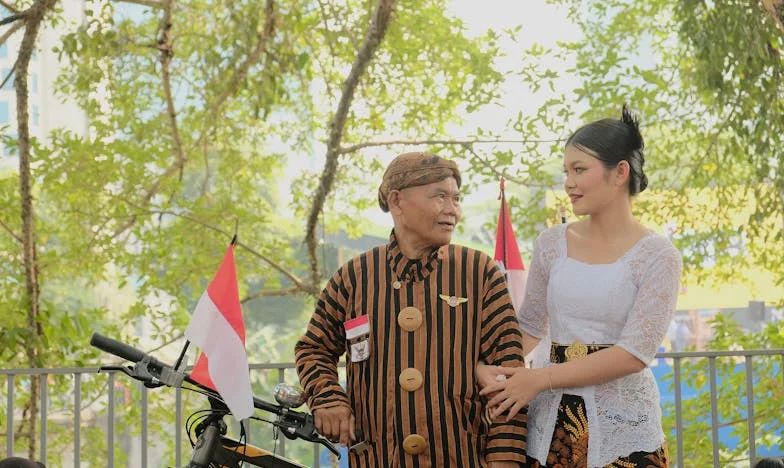Waiting for Joy: The Silence Between Us
“Why won’t you talk to me, Dad?” My voice echoed in the kitchen, bouncing off the faded wallpaper and the chipped porcelain mugs. The heater rattled as the wind clawed at our small Ohio house, and my father, hunched over the kitchen table, stared into his black coffee as if it might finally answer for him.
He didn’t look up. He never did, not since Mom died. It had been three years, but the silence between us felt as thick as the snow piling up outside. I waited, knuckles white on the back of the chair, refusing to sit, refusing to let the silence win again. My anger burned, but underneath it all, I wanted just one word from him—one sign that he still cared enough to see me.
“You’re late,” he muttered at last, voice barely above a whisper. “Dinner’s cold.”
That was all. The same four words, every night, no matter how hard I tried. I slammed my backpack onto the floor. “I had a game, Dad. You didn’t come. Again.”
He flinched, almost imperceptibly. I watched the way his hands trembled as he lifted the mug—only a fraction, but I saw it. I always saw it. The grief in him was like a ghost in our house, haunting every corner, every room. Sometimes I hated him for it. Sometimes I hated myself for not being enough to shake him free.
I remember when Mom was alive, laughter spilled out of every room. She’d dance barefoot in the kitchen, flour dusting her cheeks, and Dad would sneak up behind her, arms around her waist. But all that joy drained away the day the doctor called—pancreatic cancer, six months if we were lucky. We weren’t. She was gone in three.
After the funeral, Dad locked himself away. He stopped going to church. He stopped calling his brother. He stopped looking at me. I’d hear him at night, moving around in the garage, fixing things that weren’t broken, as if busy hands could mend a broken heart. I was fifteen when she died; now I was eighteen and still waiting for him to come back to me.
My friends stopped asking me to hang out. They didn’t get it. They had moms who made pancakes on Saturdays and dads who yelled at the TV during football. My world was silent meals and one-sided conversations. I tried to fill the void with sports, music, even a girl named Hannah who was kind enough to see past my rough edges—but every happiness felt temporary, a cheap imitation of what I’d lost.
One night, after another fight with Dad about college applications—he didn’t care where I went, or if I went at all—I found myself on the front porch, shivering in the December air. I texted Hannah: “Do you ever feel like you’re just waiting for something good to happen, but it never does?”
She called me instead. Her voice was soft. “Sometimes waiting is the hardest part, Matt. But maybe the waiting is where we find out who we are.”
I wanted to believe her. I stared at the stars, scattered like salt across the black sky, and wondered if happiness was meant for other people. Maybe the stories about hope—about waiting for joy—were just that: stories.
Winter passed, then spring. I got a scholarship to a college in Indiana. Dad barely reacted. I packed my bags quietly, room by room, hoping he’d say something, anything, to show he cared. The night before I left, I found him outside, sitting on the porch swing, the one Mom used to love.
“You leaving tomorrow?” he asked, not looking at me.
“Yeah. Early.”
He nodded. The silence stretched, heavy and awkward. I felt the anger bubbling up again, desperate to break through the numbness. “Don’t you care? Doesn’t it matter?”
He finally turned to me, and for the first time in years, I saw the man he used to be—eyes swollen, red-rimmed, filled with something like regret. “It matters, Matt. More than you know. But I don’t know how to show it. I’m sorry.”
My throat tightened. I wanted to scream, to throw something, to hug him. Instead, I just nodded, afraid that if I spoke, I’d start crying and never stop.
The next morning, he was up before me. There was a lunch packed on the counter—peanut butter and grape jelly, just like Mom used to make. A note in his shaky handwriting: “Proud of you. Love, Dad.”
I stared at that note for a long time. I cried in the car, alone, all the way to Indiana.
Life moved on. College was hard at first, but Hannah called me every week. I made new friends. I joined the track team. Sometimes I missed home so much it ached, but mostly I missed the idea of happiness—the kind you wait for, the kind you imagine is just around the corner. I called Dad once a week. Our conversations were awkward but slowly, slowly, the silence thawed. He even came to a meet in the spring. I saw him in the stands, clapping, smiling—a small, fragile joy that made my heart ache in a new way.
Now, looking back, I wonder if all that waiting was a kind of hope—a way to hold on to the possibility that things could get better. Maybe happiness isn’t something you arrive at; maybe it’s what you find in the waiting, in the small gestures, in the forgiveness you give each other, even when it’s hard.
Do we ever really stop waiting for joy? Or do we just learn to find it in the quiet moments, the ones we almost missed?
